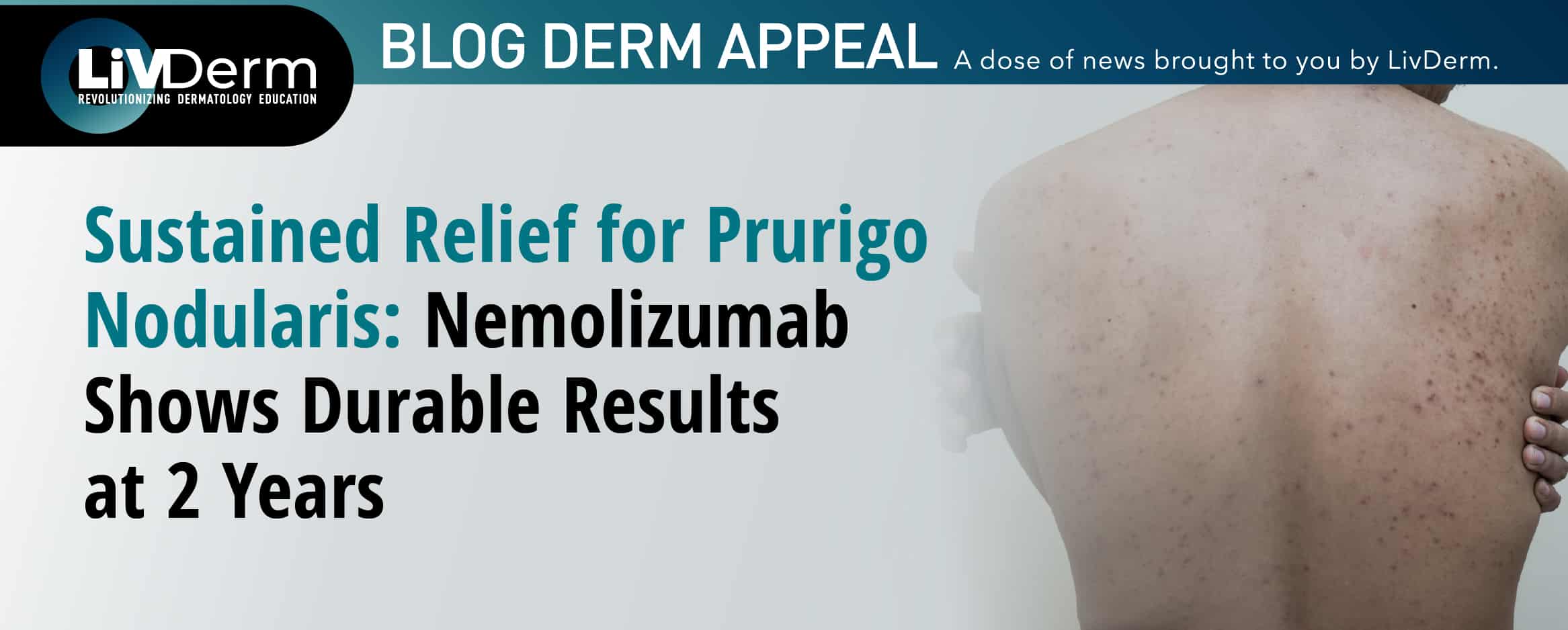Although it is often treated acutely, atopic dermatitis (AD) is a chronic disorder that requires careful patient management strategies to control flare-ups, decrease recurrences, and reduce pruritus. In certain cases, AD cannot be adequately controlled with proper skin care, topical therapy, the avoidance of triggers, or other conventional measures and instead warrants the use of systemic therapy to minimize recurrences and maintain remission. However, it is essential to assess the risk-to-benefit ratio for each case as one of the most difficult challenges in the treatment of AD is long-term control of the condition with the least associated adverse effects. Effective control of eczema and pruritus symptoms as well as the maintenance of remission are hard to achieve, prompting researchers to investigate potential novel therapeutic methods.
Instead of treating moderate-to-severe dermatitis with intermittent systemic corticosteroid therapy to control flare-ups, incorporating adjunct treatment options that might better control the condition over time is recommended. New research questions the current rescue approach to AD – aimed at treating flare-ups – and elucidates the potential long-term benefits of newer treatment options, which may both result in elongated remission periods and fewer adverse effects.
Management of Chronic Disease
Traditional oral systemic therapies come with significant risks, especially in long-term AD treatment. Compounds such as cyclosporine, methotrexate, azathioprine, and mycophenolate mofetil modulate the pathophysiologic pathways contributing to atopic dermatitis and tend to have poor safety profiles with long-term use. Cyclosporine might be used in some cases to treat resistant or uncontrolled atopic dermatitis, however, patients are usually transitioned to a safer treatment as continuous cyclosporine use is not recommended beyond 1-2 years.
Other drugs such as methotrexate, which can quickly alleviate AD symptoms, carry significant adverse effects. Azathioprine has a slower onset alongside potential toxicities, while the other available treatment, mycophenolate mofetil, has not been investigated in-depth but appears to be safer than other oral therapies offering quick onset of symptom relief. Currently, patients with atopic dermatitis lack safe, efficacious therapies for long-term use, however, emerging research aims to find new alternatives.
Monoclonal Antibody Therapies
According to a paper published earlier this year in the Journal of Clinical and Aesthetic Dermatology, injectable biologic agents that modulate the immune dysregulation present in AD patients may be a more efficacious treatment method for long-term disease management than current therapies. Previous research has revealed that injectable and oral biologic treatments – such as PDE4 inhibitors and IL-4 and IL-13 inhibitors – have the potential to effectively decrease symptoms of atopic dermatitis.
The paper evaluates monoclonal antibodies – such as dupilumab, IL-4, and IL-13 – for the treatment of AD, urging dermatologists to consider using injectable human IgH4 monoclonal antibody dupilumab as well as IL-13 inhibitors, such as lebrikizumab and tralokinumab – which are in the pipeline and can be among future promising options for improved disease management. Similar to advancements in psoriasis and psoriatic arthritis treatment, the emergence of biologics for atopic dermatitis implicates a potential revolution in AD treatment.
According the study’s author, and SBS faculty member, Dr. James Q. Del Rosso, dupilumab works by blocking the alpha subunit of the IL-4 receptor affecting IL-4 and IL-13 pathways, decreasing AD symptoms without the potential of severe side effects and thus laboratory monitoring. Research thus far suggests its safety and unlikelihood to increase infection risk, offering potentially more favorable results than oral systemic agents. While dupilumab is FDA approved for the treatment of moderate-to-severe atopic dermatitis and can greatly benefit those who do not respond to dry skin care, phototherapy, and topical prescriptions, it is not for everyone, including patients with allergic contact dermatitis or mild presentations of the condition.
In addition to dupilumab, other monoclonal antibodies are currently under investigation, with early data suggesting positive results in the treatment of moderate-to-severe AD in adults. The IL-13 inhibitors lebrikizumab and tralokinumab have demonstrated efficacious results in decreasing the signs and symptoms of atopic dermatitis. Tralokinumab may prove to be a step toward more personalized treatments of AD, as preliminary research implicates that serum level of dipeptidyl peptidase 4 may be a predictive biomarker to aid clinicians in determining candidates for treatment. Developments in the field of biologic agents for the treatment of AD signal the next step in the evolution of care.
Current therapeutic methods for patients with atopic dermatitis require baseline and periodic clinical monitoring, as each oral immunosuppressive agent carries significant risk of adverse effects if left untested. Based on recent data, monoclonal antibody therapies may be more effective and less dangerous than conventional systemic treatment for long-term condition management. Of these, dupilumab offers a more favorable safety profile supported by a growing body of evidence, while several promising IL-13 inhibitors are under development. Encouraging clinicians to shift from a rescue approach to atopic dermatitis, Dr. Del Rosso emphasizes the chronic, inflammatory nature of the disease, which calls for a new mode of treatment that can more selectively suppress AD pathophysiology, effectively treat symptoms, and sustain long-term remission states in patients with moderate-to-severe atopic dermatitis.
















